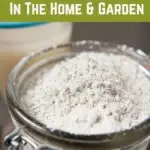
You’ve seen bags of it in the health food store and you have pinned images of the fine powder stating its health benefits on Pinterest, but have you gotten around to exploring the many uses of diatomaceous earth in your home and garden for yourself?
If not, you should – for several reasons that we’ll list below.
Diatomaceous earth is most commonly known as a strong parasite cleanser, taken internally, for pets, livestock and humans, yet it is so much more than that!
Diatomaceous earth (DE) does several things at once:
- improves energy and digestion
- boosts your immune system
- strengthens your bones
- aids your nails, skin and hair
- detoxifies the body
- rids your home of parasites, bed bugs and viruses
- acts as flea control for dogs and cats
Overall, diatomaceous earth is a common-wonder mineral that has essential uses inside and outside the home, inside and outside of the body.
What is diatomaceous earth?
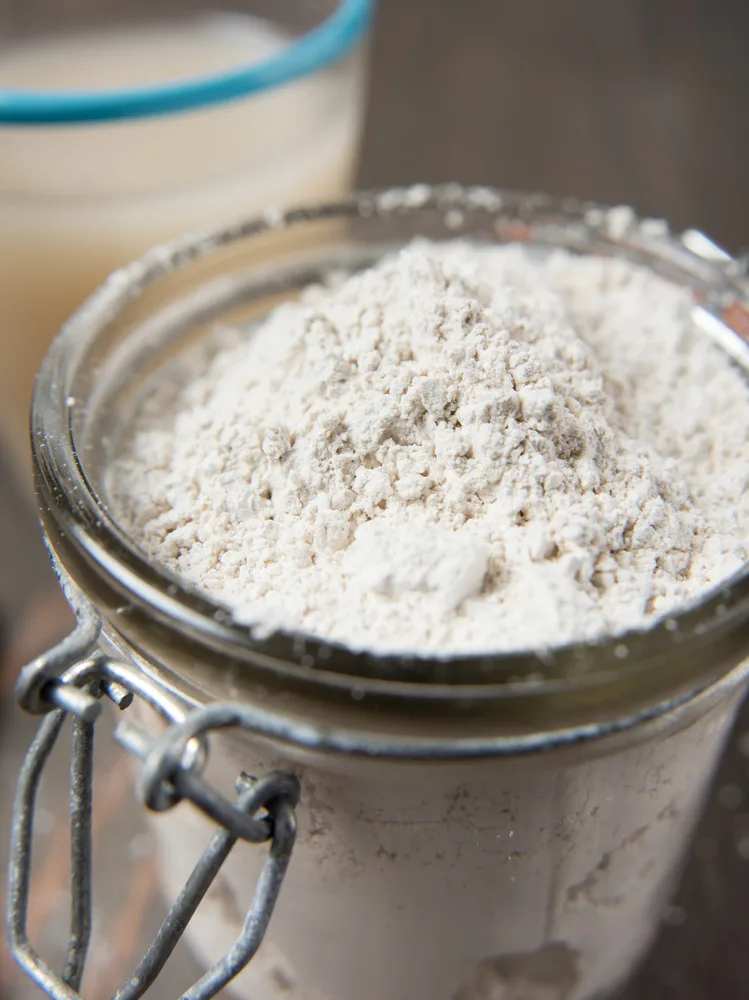
Diatomaceous earth, DE for short, is a porous, ground dust made from the fossilized remains of algae-like organisms called diatoms. The resulting powder is comprised of 80-90 percent silica with trace clay minerals and a minimal amount of iron oxide (rust).
It has a very high absorption rate, making it an excellent health-promoting supplement used in toothpastes, lotions, cosmetics and exfoliators. It is also used in paints to alter the sheen and gloss, added to non-toxic cleaners and filters of various kinds.
Even though it resembles chalk or finely powdered bentonite clay, do not confuse it for either of these – diatomaceous earth has completely different properties.
As with any fine powder, you need to take care how you spread it in the garden, on your animals or inside your home. DE also has abrasive attributes that you do not want to inhale into your lungs.
Different types of diatomaceous earth (DE)
Diatomaceous earth is mined all over the world from Nevada to Scotland, the Czech Republic and beyond. More important than where it comes from, however, is the quality.
Food-grade DE
To stay on the safe side of life, always opt for food-grade diatomaceous earth which contains less than 1%, or even 0.5% crystalline silica. Also, to meet safety standards, it cannot contain more than 10 mg of arsenic or 10 mg of lead.
Whether you buy it at your local health food store, or online, be sure to purchase the best quality to reap the best rewards.
This ten pound bag of diatomaceous earth is the most popular on Amazon.
Feed-grade DE
Not so long ago, feed-grade was the thing to buy for livestock and pets. The silica content varied, as did the origin of the diatomaceous earth, making it suitable perhaps for the garden, less so for human consumption. But your pets, chickens, dogs, horses and donkeys deserve the very best, so set the standard and deliver them food-grade DE.
Pool-grade DE
This grade of diatomaceous earth is ineffective for eliminating insects (natural insecticide) as it is treated with very high heat by a process called calcination. This process turns the silicon dioxide into crystalline silica – which is toxic to both humans and animals!
It is often used to filter out impurities in water, and while it has industrial uses, it should not be used in the home or garden.
Only purchase food-grade diatomaceous earth from reputable sources.
Diatomaceous earth in the garden
“An ounce of prevention is worth a pound of cure.” This was so wisely stated by Benjamin Franklin almost three hundred years ago and it still rings true today.
In order to remain healthy, we must watch what we eat, exercise enough and drink plenty of water. On top of that, we must strive for happiness. The same applies to the garden.
If you want a little peace from common garden pests, a little diatomaceous earth will go a long way.
Slug prevention
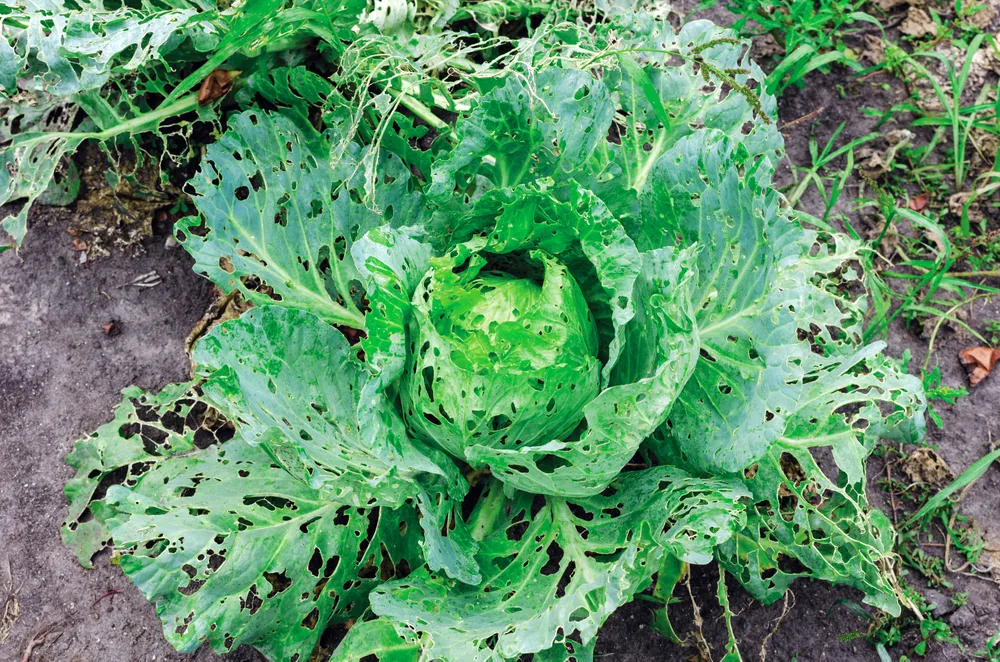
Slugs have their favorite plants – marigolds, hostas, sunflowers, basil, cabbage and lettuce – just to name a few.
If you have a bounty of slugs in your garden, you may want to consider raising backyard ducks, or take the easy way and sprinkle some diatomaceous earth around your most favorite plants.
Natural pest control
DE is one of the best non-toxic ways to eliminate pests in the garden. However, it does not discriminate, so be careful where you spread it, you do not want to put it on flowers where bees will be collecting pollen, for instance.
It works well to get rid of many insects, because the fine, dry powder is extremely dehydrating. As they crawl over it, the diatomaceous earth is absorbed by the soft skin and they die slowly from dehydration. It may take a week, or two, to see results, but it is effective and long-lasting.
Get rid of unwanted ants
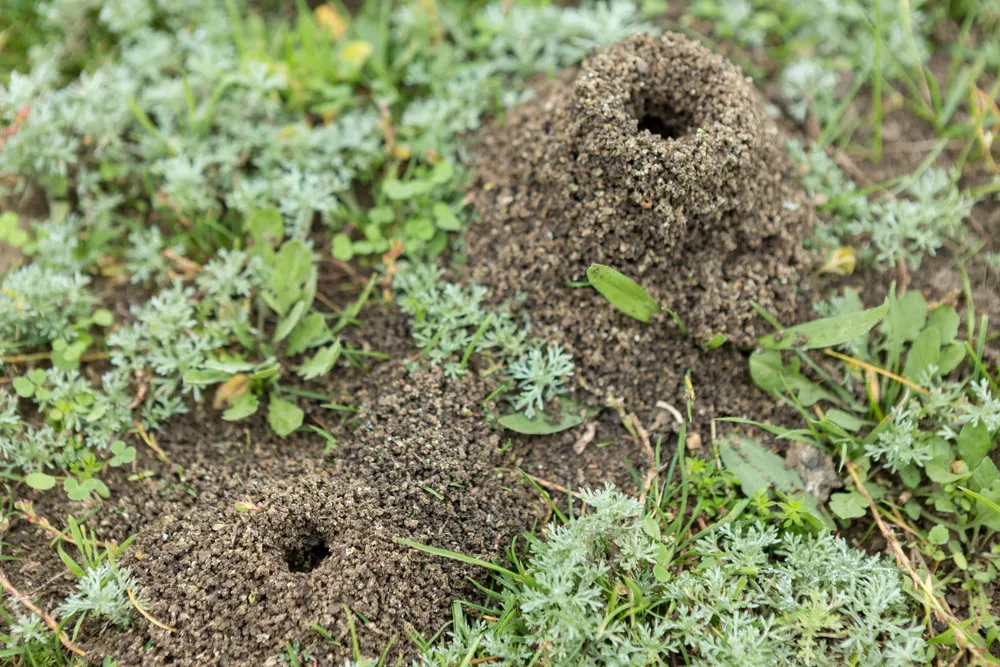
One way to get rid of ants is to cover their nest with wood ash. If you don’t have any leftover ash from your wood stove or latest campfire, diatomaceous earth is the next best option.
Simply dust the anthills and surroundings with powder to encourage them to relocate.
Aphid control
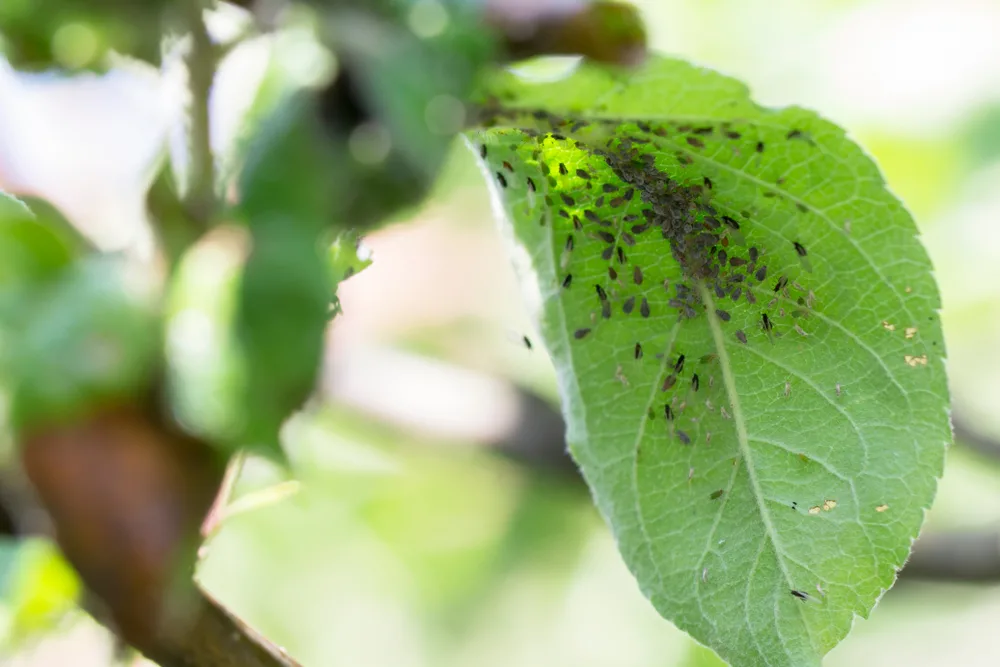
A bounty of aphids can quickly get out of hand as they feed on young plants and shoots, sucking the sap as if their lives depended on it (because it does!). They have the ability to eat and eat, until an entire plant is gone.
A quick remedy is to dust an aphid infested plant with powder, alternatively mixing it with water in a sprayer and applying it wet, waiting for it to dry to do its work.
Always be sure to rinse your garden produce well if you have previously applied diatomaceous earth.
Discourage rodents in your backyard and garden
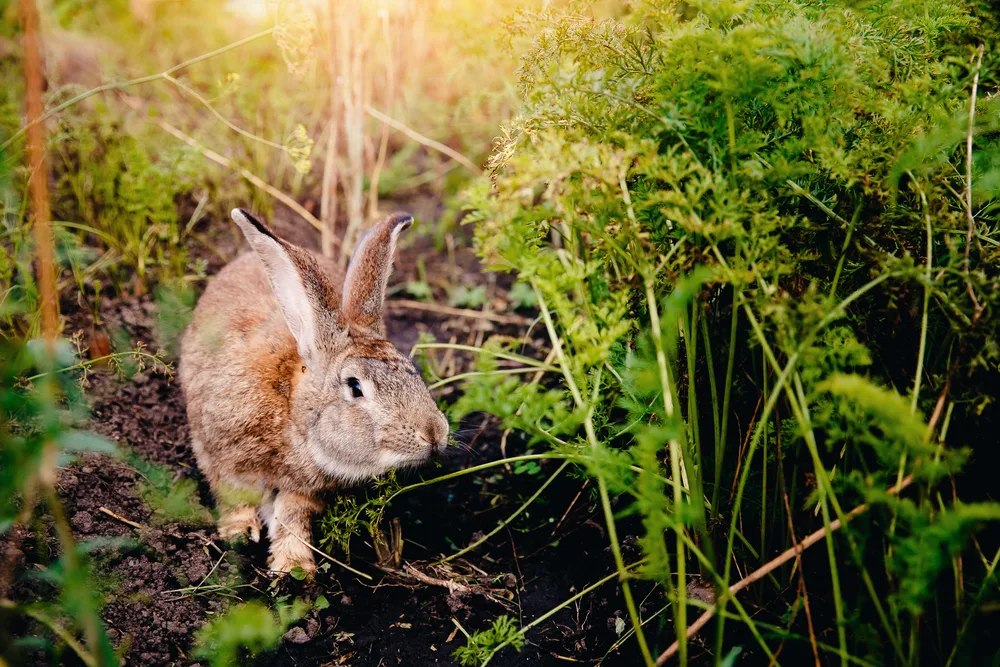
Mice, moles, rats and rabbits are all garden visitors that may stop by for a bite or two, but if they are eating the entire buffet…
Likely, you’ll want to discourage them from eating too much, and luckily there are some things they do not enjoy. As diatomaceous earth is so absorbent, you can place small jars of it in the garden along with a few drops of peppermint or citrus essential oils to help curb their appetites.
Prevent tick, mite and flea numbers from growing too large
While you can apply diatomaceous earth directly to the fur of your farm animals, there may be times when you want to stop these irritating visitors at the gate, so to speak.
Edges are where ticks and other crawling bugs enter the lawn. Good news is, you don’t need dangerous chemicals to stop them.
1 to 4 tablespoons of diatomaceous earth per gallon of water makes for a good spray ration. Use it liberally on your lawn, shrubs or in the garden.
Feed it to chickens and other farm animals
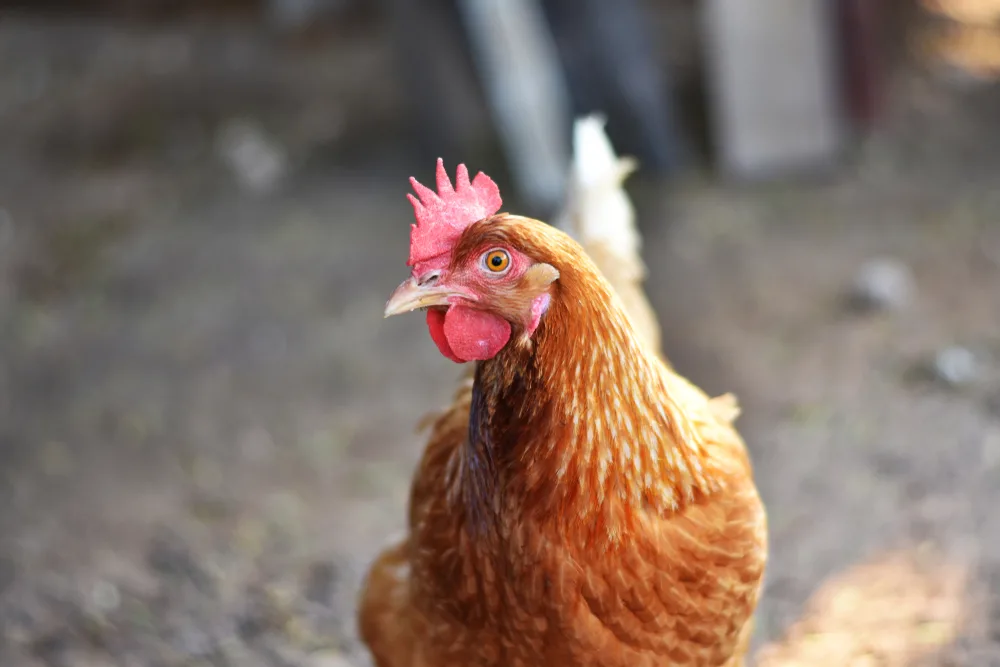
Besides the fact that diatomaceous earth treats all sorts of intestinal parasites, it is also beneficial to feed DE to your chickens for other reasons. Studies show it can lead to larger eggs, containing more albumen, as well as larger, healthier ladies.
Goats with lice will benefit from a good douse every now and again, just as pigs are at an advantage consuming it as a dewormer.
Mix it with your potting soil
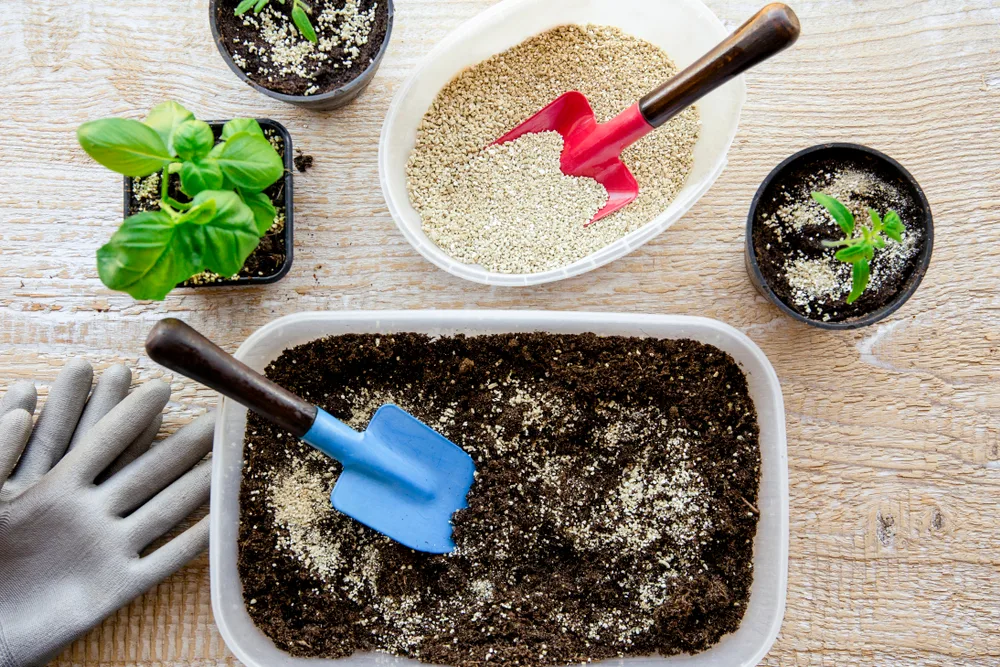
Diatomaceous earth is extremely lightweight and porous, making it an excellent substrate for hydroponic growing and Bonsai cultures.
Adding it to your standard potting soil will help to increase drainage, as well as air circulation around the plant roots.
Diatomaceous earth in the home
Most of our lives we spend a great deal of time bringing the outdoors in. Nature has so much to offer by way of holistic remedies and treatments, that it is hard to turn the best ingredients away.
Diatomaceous earth is no exception.
A natural deodorizer
Just like with baking soda, diatomaceous earth can be sprinkled inside smelly sneakers and left overnight, to rid the shoe of unwanted odors.
It can be used on carpets and rugs as well, combined with 10 drops or more of your favored essential oils for a greener clean. As mentioned above, be mindful of inhaling the dust, and make sure to vacuum thoroughly after an hour or so, leaving the windows open for some fresh air.
Natural, indoor insecticide
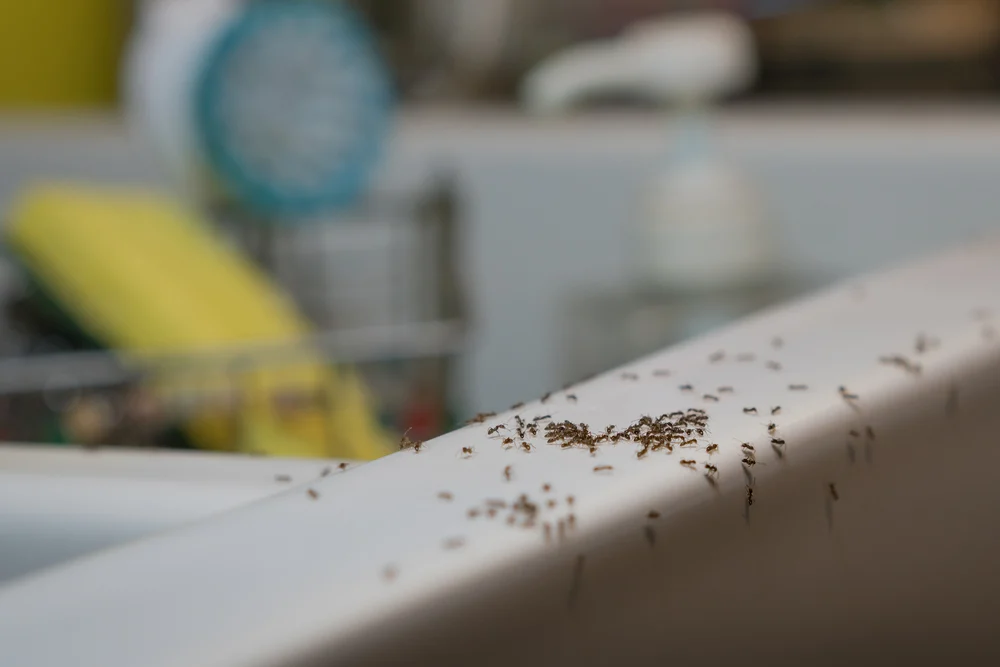
To get rid of indoor ants, simply apply diatomaceous earth directly where the line enters and exits.
For more serious problems, such as non-toxic ways to get rid of bed bugs, DE is definitely on the list of natural elimination techniques, but don’t rely on it alone. Declutter, clean, apply diatomaceous earth, and repeat, for as long as it takes.
Chemical-free cleaner
In the bathroom, DE has a special use – you can make a paste of it, along with vinegar and lemon essential oil to keep your faucets, sink and shower sparkling clean. It is a gentle abrasive, that can easily be washed down the drain.
Absorb spills
Diatomaceous earth can absorb up to twice its weight, making it a super stain remover.
Sprinkle the dry powder over a wet spill, then vacuum or sweep it up. If necessary, you may need to take additional measures with hot soapy water, but it can soak up the bulk of the spill.
Diatomaceous earth for pets
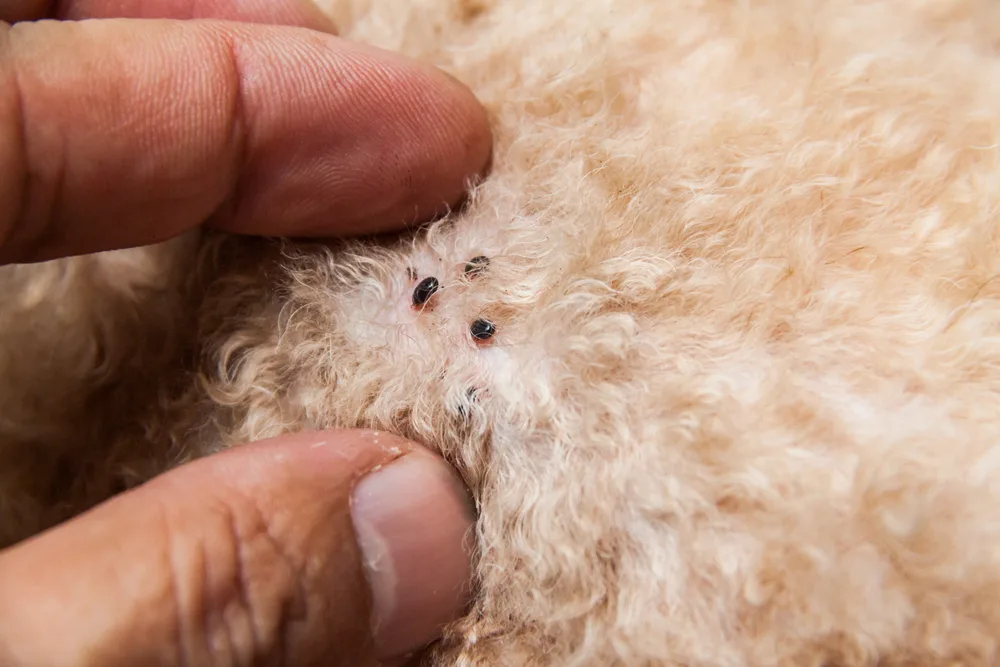
DE can be used as a non-toxic flea and tick repellent for dogs and cats. Gently apply it to the animals’ fur, bedding and any other places they may spend a lot of time. It is best to use it minimally, to avoid creating a dust cloud, and reapply it as necessary – after a bath or a swim in the lake.
Dogs can also benefit from having diatomaceous earth mixed into their food – for a healthier coat, better appetite and improved digestion.
How to use diatomaceous earth safely
Any kind of dust or powder can be hazardous if inhaled in any quantity, and DE is no exception. The fact is, diatomaceous earth particles have sharp edges that can irritate the lungs and throat.
If you are sprinkling it in the house or out in the garden, we recommend you to wear a mask that filters dusts, and it never hurts to wear a pair of properly fitting safety goggles as well.
Where to buy diatomaceous earth?
If you live out in the countryside, your local feed store should carry food grade diatomaceous earth in larger quantities. As a food supplement, you’ll likely find it at health food stores, or online.
This Amazon listing for 10 pounds of food grade diatomaceous earth seems to be the most popular with most positive reviews.

Get the famous Rural Sprout newsletter delivered to your inbox.
Including Sunday musings from our editor, Tracey, as well as “What’s Up Wednesday” our roundup of what’s in season and new article updates and alerts.


